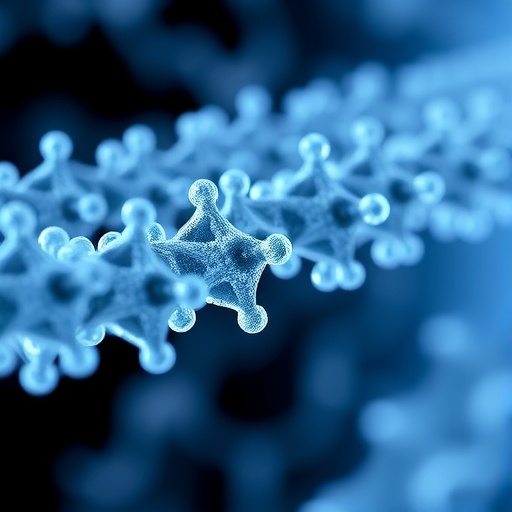In the current landscape of energy storage technology, the demand for efficient, long-lasting, and sustainable solutions is ever-increasing. A recent publication in the journal Ionics has put forth a groundbreaking study by Zhao, Luo, and Huang, outlining a simplified design and synthesis method for one-dimensional titanate nanotubes. These novel structures are poised to become advanced anodes for lithium-ion batteries, which are critical components in powering everything from electric vehicles to portable electronics. The research presents a transformative approach to battery technology, with wide-ranging implications for how we think about energy storage.
Lithium-ion batteries have revolutionized the way we store energy, primarily due to their high energy density and efficiency. However, issues such as capacity fade, charging speed, and overall lifecycle have prompted researchers to explore alternative materials for anodes. Traditional graphite anodes, while effective, come with certain limitations that hinder performance at higher rates and in extreme conditions. The introduction of titanate nanotubes offers a promising alternative that could address these challenges.
Titanate, a ceramic material, exhibits unique properties that make it an attractive candidate for anode materials. The one-dimensional structure of titanate nanotubes provides a high surface area that facilitates electron and lithium-ion transport, leading to improved electrochemical performance. This architectural advantage is crucial in enhancing the rate capability of lithium-ion batteries, especially for applications requiring quick charging cycles and high power outputs. Zhao and colleagues have leveraged this property in their research, demonstrating the potential of titanate nanotubes in today’s fast-paced technological environment.
The process of synthesizing these titanate nanotubes detailed in the study is a significant leap forward. Traditional methods of creating nanomaterials often involve intricate and time-consuming techniques that are not easily scalable for commercial production. The researchers have developed a simplified synthesis pathway that not only reduces the number of steps involved but also ensures the uniformity and quality of the nanotubes produced. Such an innovation is pivotal for real-world applications, as it paves the way for a more sustainable and economically viable production route.
In their experiments, Zhao and his team provided comprehensive electrochemical characterization to analyze the performance of the titanate nanotubes as anodes. They found that these nanotubes not only exhibit exceptional cycling stability but also maintain a high capacity for lithium storage, significantly outperforming traditional anode materials. This characteristic of enhanced stability is critical, as it translates to longer battery life and reliability in consumer applications, a feature that manufacturers are keenly interested in.
Moreover, the research delves into the aspects of charging times, revealing that the titanate nanotubes can achieve rapid charging cycles, making them especially desirable for electric vehicle applications. As the automotive industry pivots towards electrification, the need for materials that can support fast charging without compromising safety or longevity has become paramount. The titanate nanotubes presented in this study might just be the solution the industry is searching for to meet emerging demands.
Environmental sustainability is another layer where titanate nanotubes shine. The eco-friendly aspects of using titanate as a battery material align with global initiatives to reduce reliance on materials that involve harmful extraction processes. As energy storage technology evolves, the move towards greener alternatives is not just a trend but a necessity. Zhao et al.’s work contributes to this narrative by highlighting a material that is abundant and less harmful to the environment compared to conventional battery materials.
Furthermore, the implications of this research extend beyond battery performance; they open up avenues for further innovations in nanotechnology. The simplified synthesis method could inspire future studies focused on optimizing other nanomaterials for a variety of applications across different fields, including electronics, telecommunications, and renewable energy systems. By demonstrating the versatility of titanate nanotubes, the research encourages a systemic reevaluation of material choices in energy storage solutions.
As innovations burgeon within the science of nanomaterials, understanding the underlying mechanisms that contribute to the performance of such advanced anodes becomes essential. Zhao’s research does just that, as it meticulously examines the electrochemical behavior of the nanotubes. Their studies spotlight the significance of structural integrity and its correlation to performance, offering insights that could benefit ongoing research in battery technology.
In conclusion, the simplified design and synthesis of one-dimensional titanate nanotubes mark a notable milestone in the advancement of lithium-ion battery technology. As we edge closer to realizing a more sustainable energy future, the research conducted by Zhao, Luo, and Huang acts as a catalyst for wider adoption of this innovative material. The study not only highlights the technical merits of titanate nanotubes but also envisions a future where energy storage is both efficient and environmentally friendly. As the conversation around battery technology continues to evolve, this research will undoubtedly contribute significantly to discussions on enhancing energy storage capacity while aligning with global sustainability goals.
As the world anticipates a significant shift in energy systems, studies like this pave the way for achieving an efficient, reliable, and sustainable energy future. With expanded applications in electric vehicles and renewable energy systems on the horizon, one-dimensional titanate nanotubes may very well lead to the next breakthrough in battery technology.
Subject of Research: One-dimensional titanate nanotubes as advanced anodes for lithium-ion batteries.
Article Title: Simplified design and synthesis of one-dimensional titanate nanotubes as advanced anodes for lithium-ion batteries.
Article References:
Zhao, W., Luo, SH., Huang, R. et al. Simplified design and synthesis of one-dimensional titanate nanotubes as advanced anodes for lithium-ion batteries.
Ionics (2025). https://doi.org/10.1007/s11581-025-06592-8
Image Credits: AI Generated
DOI: https://doi.org/10.1007/s11581-025-06592-8
Keywords: Titanate nanotubes, lithium-ion batteries, anodes, energy storage, electrochemical performance, sustainable materials, nanotechnology.




